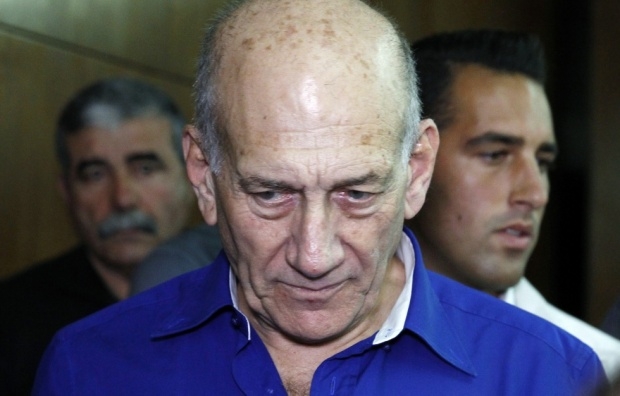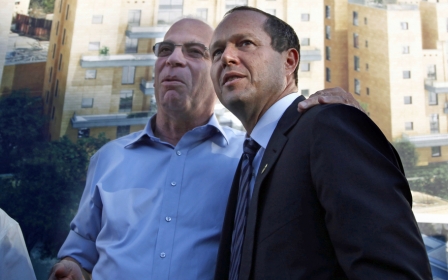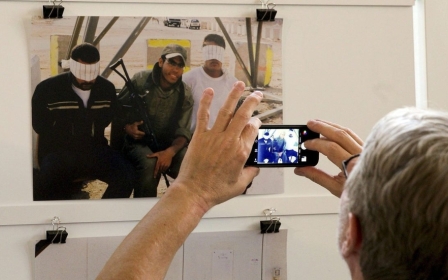For Ehud Olmert, justice has been done - but not enough

Former Israeli prime minister Ehud Olmert will go to jail - albeit only for 18 months. This is probably the least ambiguous fact to emerge out of the long-awaited Supreme Court ruling on Olmert’s appeal against his conviction of accepting bribery in the so-called Holyland Affair. An appeal against another conviction (in the Talansky Affair) is still pending, as is an appeal against a full acquittal in a third trial (the Rishontours Affair) and partial acquittal in a fourth (the Investment Centre Affair).
The police have also recommended that charges be pressed of obstructing the course of justice, which would begin - remarkably - a fifth process.
The roots of the trials go to long before Olmert's brief term (2006-2009) as prime minister.
In chronological order (and using the press monickers, rather than official titles of the trials), the Investment Centre Affair concerns Olmert’s tenure as minister of trade and infrastructure, when he allegedly intervened in the decisions of the ministry’s investment centre, to benefit the projects submitted by his former law firm partner, Uri Messer. The Talansky Affair concerns envelopes stuffed with cash, sent by businessman Moshe Talansky and delivered by intermediaries to Olmert when he served as mayor of Jerusalem (1993-2003) and minister of trade and infrastructure (2003-2006).
The state maintains Olmert pocketed the money; Olmert maintains these were campaign funds and not used for personal gain.
The Rishontours Affair concerns Olmert using state funds to buy flight tickets for himself and his family on private trips abroad; Rishontours was the travel agency through which the flights were booked.
Finally, the Holyland Affair concerns bribery on a massive scale - of both Olmert and his successor as Jerusalem mayor, Uri Lapoliansky, to get them to rush through confirmation of an outlandishly grandiose residential complex on a Jerusalem hilltop against strong opposition by residents and ecologists. Olmert’s bribes alone, it was alleged, amounted to millions upon millions of Israeli shekels, and the sums exchanged in the entire affair ran up to millions of dollars.
The former prime minister’s conviction in the Holyland Affair, which came in March 2014, rested heavily on the testimony of a state witness - Shmuel Dechner, a flamboyant former chemist, manager and investor with a trail of debts in both Israel and the UK, was allegedly hired by Holyland’s main stake holder, Hillel Cherny, to secure the requisite permissions; when Cherny failed to pay Dechner his fees, the latter turned on him, filling a civil lawsuit and offering his services as a state witness.
Olmert specifically was accused by Dechner of accepting half a million shekels ($128,200) in bribes, via his brother, lawyer Yossi Olmert, of suggesting he give money also to the municipal engineer, Uri Sheetrit, and of being asked, via Olmert’s longtime secretary and enforcer Shula Zaken, to sponsor a public opinion poll. The former prime minister was convicted in this affair based largely on the first accusation of the three and acquittal on the other two.
Zaken herself was convicted of accepting vast bribes from Dechner, but she later turned a state witness; the fifth potential process against Olmert concerns his attempts to dissuade her from testifying against him.
Despite the conviction, Dechner’s credibility was destroyed over the course of the trial, shining a spotlight not only on his rather sordid business record but also on his almost pathological history of lying. He died of a heart attack before he could be cross-examined by Olmert’s lawyers, which also didn’t help matters.
At the end of the day, this particular case at this particular stage turns on the question of whether Olmert knew of Dechner giving money to his brother. The Jerusalem District Court maintains that he did; the Supreme Court agreed that this was a reasonable assumption to make - after all, Dechner was courting favour with Olmert, and had nothing else to gain from lavishing gifts on his younger brother. But crucially, the court surmised, this assumption does not yet amount to proof, and thus does not withstand the test of reasonable doubt. The central charge was thus thrown out, and only a lesser one, of accepting bribery to the tune of 60,000 shekels, was upheld.
After the ruling was announced, a jubilant Olmert tried presenting it as acquittal, telling reporters outside the courtroom he never took any bribes at all. Neither is actually true:
Olmert remains the only former prime minister to be convicted in a criminal court, and bribery is bribery - strictly speaking, 60,000 is as abhorrent as 60 million. With other trials and appeals still under way, Olmert’s extraordinarily lenient jail sentence may still be extended and his political career is, at any rate, long over - he is legally barred from ever serving in a public role again.
There is still the possibility of a presidential pardon by Reuven Rivlin (unlikely, considering the president’s personal abhorrence of corruption) or a reduction to time served on compassionate grounds if Olmert’s pancreatic cancer were to relapse - which is also, according to the little we know of his recent medical history, not likely.
On the outside, this should send out a strong message about accountability and corruption, possibly even propping up Israel’s slipping international rating on that front. The most powerful man in the state was dragged down from his post and is now set to spend at least some time in prison - even if the actual time served is brief, the symbolic importance is immense.
But what stands out all the more is the degree to which a sly, wealthy and powerful man can delay justice. Even if he is convicted on the remaining charges, Olmert has already spent more time in investigation rooms and in the dock - all the while remaining free to travel at home and abroad - than he will ever spend in prison.
The role of Olmert’s eminence in the tortuous process of his trial is underscored by a pure coincidence.
Less than a week ago, the Supreme Court referred to “intuition” to uphold the conviction of Roman Zadorov, an immigrant convicted of the murder of schoolgirl Tair Rada in 2006, despite a wealth of forensic evidence pointing at his innocence and consistent reports of police coverup. Now, reliance on that same “intuition” was set aside to all but exonerate a former prime minister. As Zadorov’s lawyer Avigdor Feldman complained, reasonable doubt is the most slippery beast of criminal law and tends to favour wealthy politicians over impoverished immigrants.
The same, alas, can be said of the silent witnesses to Olmert’s trials - the hundreds of Palestinians, Lebanese and Israelis killed on his watch as prime minister. This is perhaps the most bitter subtext of the entire saga.
The man who bears direct executive responsibility for the killing of Lebanese civilians in the Second Lebanon War, Palestinian civilians in Operation Cast Lead, and the loss of over 100 Israeli soldiers in the worst-managed war Israel ever engaged in, is going to jail - but he is not likely to ever face trial for even a single life sacrificed to his unparalleled, vicious incompetence as a prime minister.
After six years of legal wrangling, some small crumb of justice has been doled out by the Supreme Court; but true criminal justice, as well as historical justice, for Israel’s 12th prime minister, is years, if not decades, away.
- Dimi Reider is an Israeli journalist, blogger and co-founder of +972 Magazine. His work has appeared in The New York Review of Books, The New York Times, The Guardian, Foreign Policy, Haaretz, Daily Beast, Al Jazeera and the Jerusalem Post. Dimi is also an Associate Policy Fellow at the European Council on Foreign Relations (ECFR).
The views expressed in this article belong to the author and do not necessarily reflect the editorial policy of Middle East Eye.
Photo: Former Israeli Prime Minister Ehud Olmert (AFP)
Middle East Eye propose une couverture et une analyse indépendantes et incomparables du Moyen-Orient, de l’Afrique du Nord et d’autres régions du monde. Pour en savoir plus sur la reprise de ce contenu et les frais qui s’appliquent, veuillez remplir ce formulaire [en anglais]. Pour en savoir plus sur MEE, cliquez ici [en anglais].





